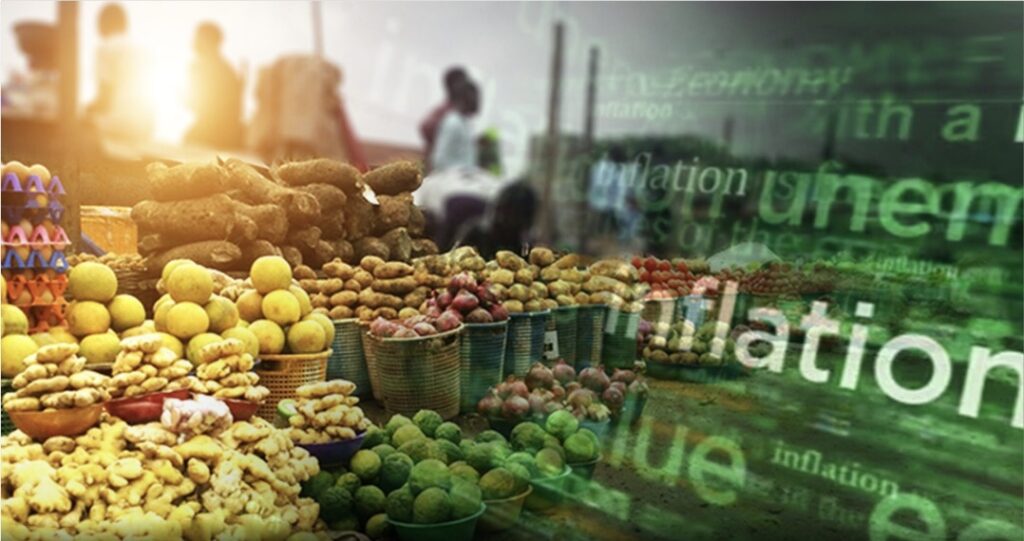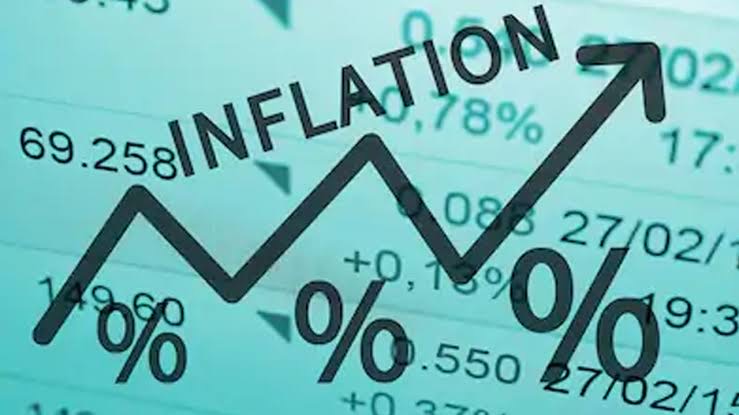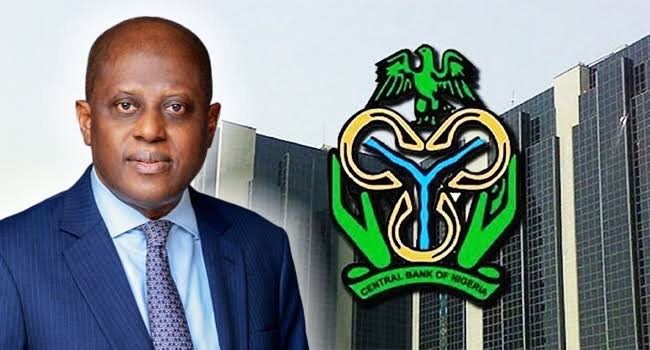A recent survey by the Central Bank of Nigeria (CBN) has revealed that rising inflation will see Nigerian households spending most of their income on food in the next six months.
The latest report from the National Bureau of Statistics (NBS) puts inflation at 33.40 percent and food inflation at over 40 percent.
According to a CBN report, the survey was conducted from July 22 to 26, 2024, with a response rate of 99.7 percent. The sample size was drawn from the NBS Master Sample List of 1,665 households across the 36 states and the National Capital Territory of the federation.
According to the CBN Household Expectations Survey report published on its website, many Nigerians intend to live without non-essential items in the next three and six months.

However, they plan to spend 54.9 percent of their income on food in the next six months. “Spending outlook for the next six months showed that consumers plan to spend a substantial amount of their income on the following items: food and other household Items (54.9 points), education (35.4 points), transportation (30.2 points), electricity (20.0 points) and medical expenses (12.2 points),” the survey found.
Meanwhile, respondents do not plan to spend a significant portion of their income on big-ticket items such as buying a house, car, or appliances.
Nigerians also do not intend to spend money on investments such as buying real estate or other forms of investment. They also do not intend to save their income.
“This reflects their family financial situation in the current month and reaffirms their stance that they will be drawing down on their savings or getting into debt,” the central bank survey showed.
Inflation Perception and Outlook:

In terms of the general perception of inflation in July 2024, 83.7% of respondents believe that the current inflation rate is at a high level of minus 61.1%.
Looking at the breakdown of the responses, the index for businesses is slightly lower than that for households (minus 63.3%) at minus 58.7 points.
This suggests that businesses’ perception of this month’s inflation rate is slightly better than that of households, and therefore their forecasts were less pessimistic. Looking at the breakdown further, large businesses believe that the current level of inflation is too high, with an index of -70.8%.
Further analysis by income bracket shows that the income bracket of respondents is 150,001-
200,000 people expressed the opinion that this month’s inflation rate is too high, with an index of -66.4%. The index for the 200,000+ income group, which stood at -58.3 index percent, was less negative, indicating the least pessimism on inflation expectations for the current quarter.
The CBN survey also found that many Nigerian households expect the naira to depreciate further in the next three months, but appreciate in the next six months.
The local currency fell to 1,598 to the dollar on Friday, ending August in the red. This is true despite a further decline to 1,639 to the dollar due to dollar shortages.
This development came after the naira saw some appreciation early in the second quarter of the year, but then began to depreciate, making the naira the world’s worst-performing currency after the Lebanese pound. However, respondents are optimistic that the CBN’s monetary policy decision will lead to a recovery of the tattered naira early next year 2025.
The survey also shows that Nigerians expect inflation, borrowing interest rates, and unemployment to rise further due to strong macroeconomic pressures.
Respondents believe that the economy will weaken rather than strengthen if prices rise faster than they are now.
The CBN survey said, “The survey results show that 80.9% of respondents believe the economy will weaken while 3.2% believe the economy will become stronger.”
Factors that played a significant role in businesses’ perception of inflation include Energy cost, which rose from 90.6 percentage points in June to 91.8 percent in July, making it the main driver. The exchange rate remained consistently high, increasing slightly from 88.3 in June to 88.8 in July. The transportation sector, at 88.5%, was the third largest driver of inflation during the reporting period.
































